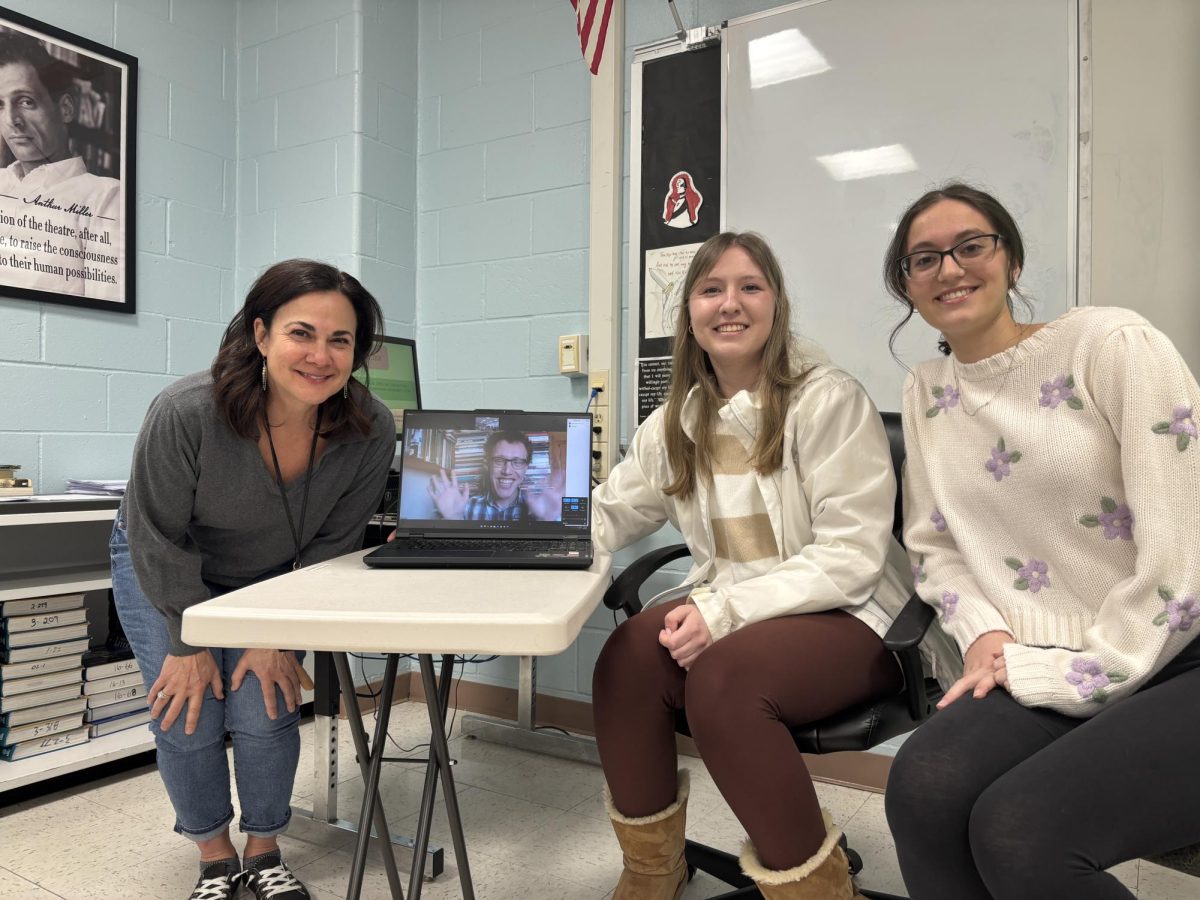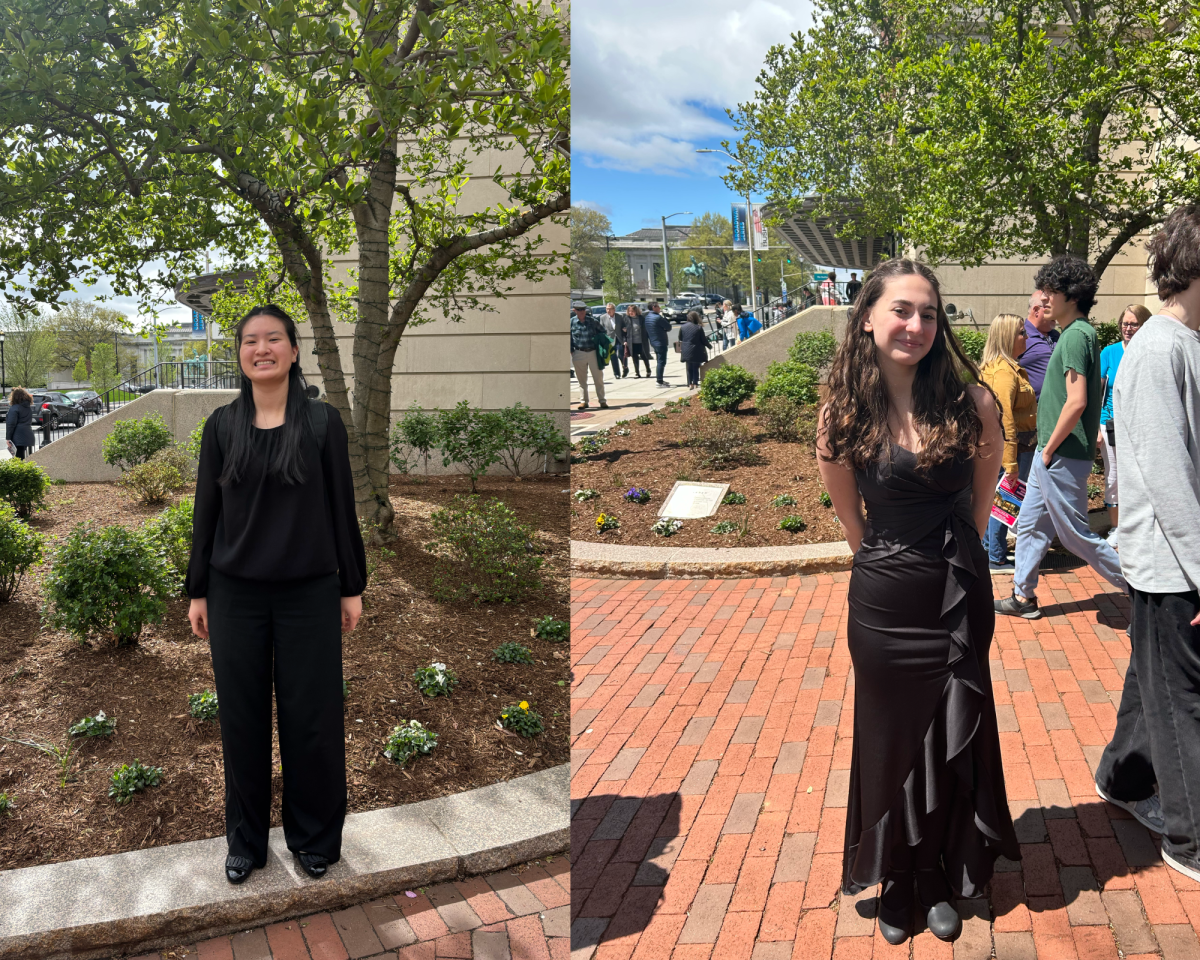On Monday, March 24, students in Ms. Etheridge’s 1st period AP English Literature and Composition class were met with a surprise: a Zoom call from a living poet, Karl Knights. Knights, who is a winner of the 2021 New Poets Prize, joined the class to give a live reading of his poem “The Difference Between a Dog and a Biscuit Tin” and to answer questions from students.
The appearance from Knights comes during the class’ poetry unit. Each day, one group of students discusses a poem they chose with the class, strengthening students’ exposure to and understanding of different forms of poetry. The Knights poem was chosen by seniors Agata Arkhipkina and Madison Calvanese. The two didn’t have any previous connection with the poet, but Arkhipkina found the poem while scrolling the Poetry Foundation website. She said, “Right after the first line, it totally hooked me because of the nostalgic feeling it evoked.” She reached out to Knights via email, and he agreed to discuss it with the class.
The poem draws upon Knights’ experience growing up with autism, contrasting peoples’ perceptions of him with his actual abilities. Knights discussed how his writing was largely autobiographical; responding to a question from Jason Stiles about where his inspiration comes from, he noted, “Probably 99% of what’s in my poems comes from something I’ve seen or experienced. I have very little imagination in the traditional sense of the word. If you dropped me in a sandbox in Minecraft and said ‘build something,’ I wouldn’t know what to do.” Instead, for Knights, the job of the poet is to take an experience and to “whittle it down to the essence.”
Student Daniel Kelly asked why Knights chose to use poetry as the medium to express himself. Knights explained that he has a short attention span and feels that poems, as compared to novels, are “very digestible, but at the same time, I don’t feel shortchanged by the shortness. … It’s more accessible, both for me as a writer, and also as a reader.”
Knights concluded with a message: “It’s not me who completes a poem, it’s you who completes a poem; it’s the reader. Thank you all for completing this poem.” Following the Q&A, the class continued to discuss the poem in detail, touching upon the themes of infantilization, stereotypes of autism, family responsibility, and self-perception.









